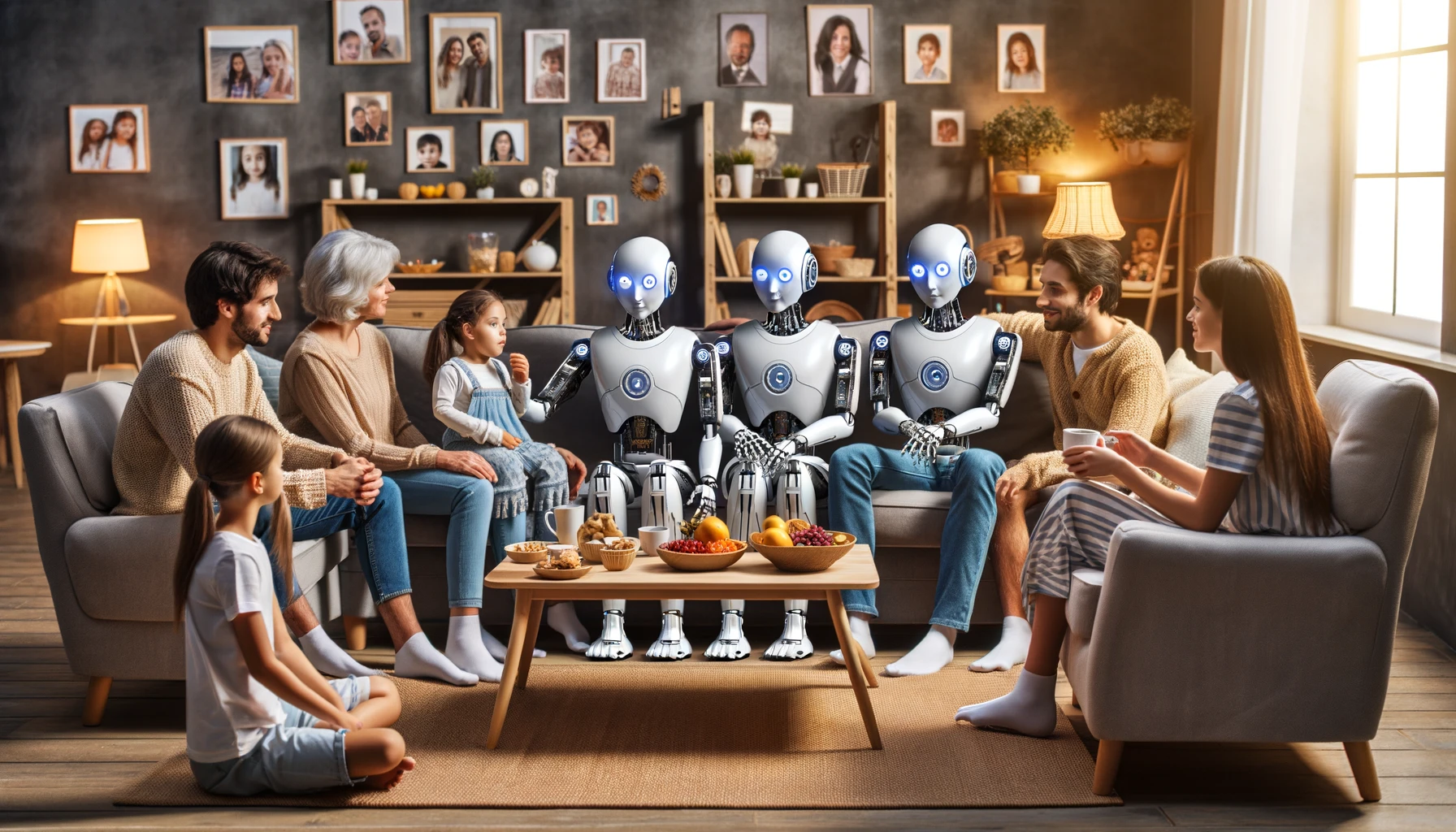In an eye-catching and somewhat humorous study that seems to blur the lines between sci-fi and suburban reality, researchers are proposing that a good chunk of family duties might soon be handed off to robots—yes, robots—that won’t complain about taking out the trash or argue about who gets control of the TV remote. Conducted by a prominent tech research firm, this study surveyed a vast array of participants to pin down exactly which family roles could be offloaded to our future metallic household members, without causing a domestic meltdown.
According to the findings, a whopping 70% of everyday family interactions, like planning meals, supervising homework, or even indulging in casual chitchat at the dinner table, can be managed by today’s robots. These aren’t your garden-variety, clunky machines; these robots come with cutting-edge artificial intelligence, capable of simulating emotional intelligence and participating in social interactions so convincingly, they may as well be mistaken for Uncle Joe at family gatherings.
What’s more, these robots don’t just perform tasks; they perform them with a cheery demeanor that never falters—not even when asked to replay a teenager’s favorite, angst-filled playlist for the umpteenth time. Imagine a robot unfazed by the chaos of a holiday dinner or a robot that never forgets a birthday (and never judges your cake-baking skills).
However, this intriguing proposition hasn’t been met with universal applause. Detractors of the study are quick to point out that it smacks of a plot lifted straight from a dystopian novel. They argue fervently that the irreplaceable warmth and complexity of human bonds are in peril—presumably fearing a future where emotional heart-to-hearts are replaced with software updates and time-outs involve pressing the reset button.
On the flip side, advocates for robot integrations in family life are touting them as the next big breakthrough for modern multitasking families. Picture this: a robotic grandma that doesn’t just recount endless stories from the “good old days” but also streams new releases in breathtaking 4K resolution. Supporters argue that these robots could provide invaluable assistance and companionship, especially for elderly relatives who might otherwise face loneliness, suggesting that as these robots evolve, they might even tackle more emotionally demanding roles, like counseling moody teenagers or offering sage advice.
As the horizon of robotic technology broadens, it poses profound questions about the role these silicon siblings could play in reshaping our domestic lives. Are we heading towards a future punctuated by robotic family reunions, where your cousin is a chatbot? How will these innovations alter the fabric of society? The humorous juxtaposition of traditional family values against a backdrop of AI advancements continues to stir a pot of lively debate.
One thing is clear: as robots increasingly mesh into the intricacies of family dynamics, we may need to recalibrate our definitions of kinship and connectivity. The discussion isn’t just about whether robots can become part of the family; it’s about understanding the space between helping hands and replacing human touch—leaving us to ponder the price of convenience against the value of human connection.

